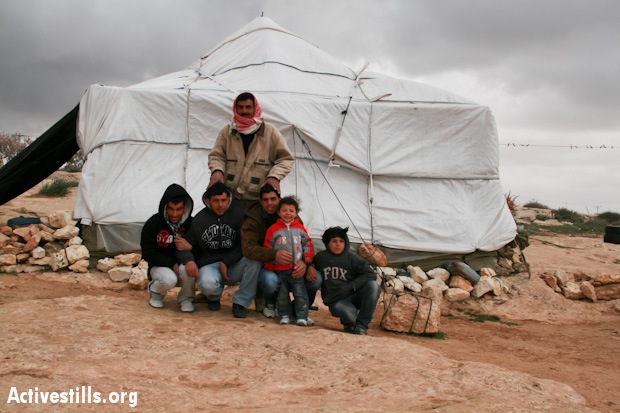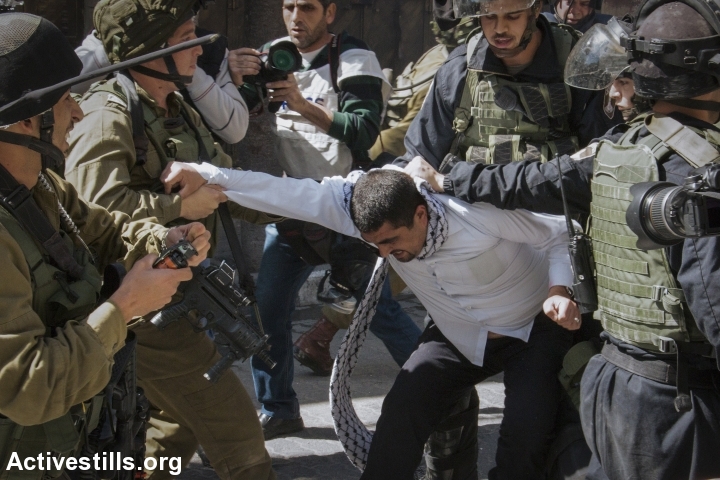I grew up in a settlement. I met more Palestinians that the average Israeli. But it was only during my military service in the West Bank that I realized our 47-year rule over the occupied territories must come to an end.
By Shay Davidovich
Elections have always fascinated me. As a child, I insisted on staying up late to hear the preliminary results and the party leaders’ initial responses – all happy to declare the dawn of a new era. The soldier’s votes were always counted late, but were never seemingly influential, at most one seat here or there. Interested in politics from a very young age — I was a strange child.
I grew up in the settlement of Ariel during the Second Intifada. As buses exploded in Tel Aviv, we weighed each and every potentially dangerous ride in and out of the settlement. Like many of my peers, this period shaped my political perception more than anything else. I must admit that I did not understand why it all was happening. What was perfectly clear, however, was that when I turned 18 it would be my turn to take up arms and protect my community — my country.

The first time I participated in the democratic process was in the occupied territories, in uniform. After basic training, we were sent to our first operation: guarding settlements in the South Hebron Hills. I didn’t really know where I was, but it didn’t matter very much. It was our turn to fight. Our commanders did their best to clarify that training was over and that now everything that happened from now on would be the real thing. My squad was assigned to Susiya, a settlement near a Palestinian village bearing the same name. I quickly understood that I was the only one who didn’t know where it was located. During our service in Susiya, our commander was also the settlement’s security officer — a settler. After a briefing we took our posts, and I volunteered for the first shift that observed the neighboring Palestinian village. To be honest, I was disappointed. All our preparation seemed meaningless in the stillness and beauty surrounding me.
A few hours into the shift, the settlement security officer drove up to my post in his car and told me to come quickly. An obedient soldier, I followed him into his car and we drove out of the settlement. Minutes later, we got out of the car to chase the target, which took me a few seconds to identify. The settler ran up a hill, and I followed close behind. Instead of an armed terrorist, I found myself chasing a little boy, maybe five years old, stark naked except for his blue rain boots, who was running away while crying hysterically. My first instinct was to freeze and try to understand what on earth was going on. But I really couldn’t grasp anything that was happening, and since the settler was still chasing the boy, I followed him.
At some point the boy disappeared and the officer walked back to his car, me still following him, confused, catching my breath and asking him to explain. He took me back to my post and praised my determination. I was back standing in that still and beautiful place. Previously, army procedures had seemed illogical, but something about this particular situation seemed even less logical than the sergeant’s orders. Something about chasing a naked child when I was armed completely contradicted the logic I was raised with.
The assignment in Susiya was my first encounter with a reality I hadn’t known about before. I grew up in the occupied territories, encountering more Palestinians in my life than the average Israeli does. But it was during my service in the West Bank that I realized I really had no idea what was going on. From our first days on assignment, it became clear to us that we were not there to protect the settlers from the Palestinians, but rather to protect the Palestinians from the settlers. That is certainly not what the civilian security coordinator told us, but that is essentially what we did in practice.
During one of our first days there I was at that same post when suddenly I heard cries of “Soldier! Soldier!” It took me a few seconds to realize that the calls were coming from the Palestinian village; a group of young settlers had set off for the Palestinian village with stones in their hands. One of my officers later criticized me for not alerting forces earlier. How could I have guessed that the very same guys who had kept me company on my shift, before disappearing, planned on going into the village to beat up Palestinians?
Accepting the occupation’s twisted logic
It was election time, and the army’s mobile voting station pulled up at the settlement. Another soldier took over for me so I could go vote. It was my moment to do something, and so I voted for the only left-wing party I knew of: the Labor Party. I immediately called my mother, who was the most political person I knew. I had to tell her about what I had done and explain that she had no idea what we were doing here. For me, voting was much more than my civil duty; I felt obligated to take a stand against the community from which I came. For the first time in my life I felt that maybe those “lefties” really knew what was going on here and would do everything in their power to end it. I simply could not consent to what I was doing there.

You have forgotten me – you have forgotten your children. I am addressing those who do not understand that we cannot come to terms with the occupation. We cannot come to terms with a reality in which we soldiers have been sent to the occupied territories to control the Palestinian population for over 47 years. I have been active with Breaking the Silence for two years, as well as with other Israelis who served in the army and who grasp the moral price we are paying for the occupation. I share my military experiences in the West Bank with young people throughout Israel, taking Israelis on tours to Hebron and the South Hebron Hills, so that they can see the reality of occupation for themselves.
I look at the young soldiers stationed there and see myself: an 18-year-old boy, motivated and convinced of what we are doing there, but mostly a boy who follows every order he is given. A week ago I spoke to a courteous combat soldier who tried to explain that Hebron isn’t Tel Aviv, and that it is completely reasonable to have sterile streets on which Palestinians aren’t permitted to walk, even if their front door faces that street. Soldiers accept the occupation’s inverted logic. That is our problem.
It is us you have forgotten. Ending the occupation is not on the agenda of any of the larger parties. It isn’t sexy, it aggravates people, it puts off voters. We at Breaking the Silence will still be here after the elections to break the silence about the reality in the occupied territories. We have just one request: please do not vote for anyone who will keep us in the territories.
Shay Davidovich served in the Field Intelligence Corps of the IDF from 2005 until 2008, and is a member of Breaking the Silence. This article was first published on +972′s Hebrew-language sister site, Local Call. Read it in Hebrew here.

